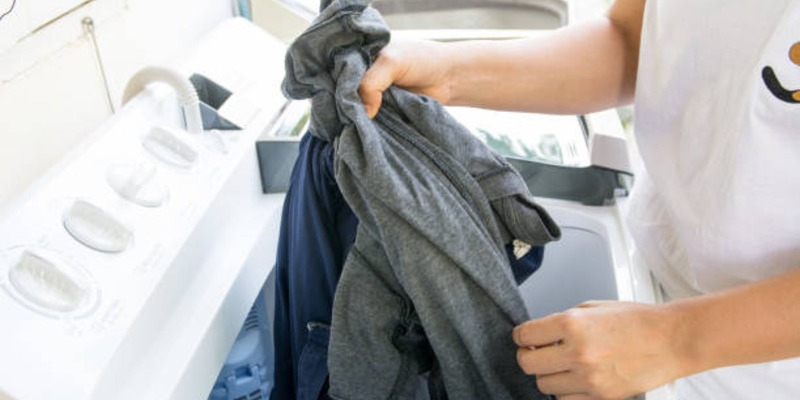What to Choose Between Filing Your Tax Yourself or Hiring an Expert?
Triston Martin
Dec 11, 2023
As tax season approaches, many individuals find themselves grappling with the age-old question: "Should I do my own taxes or hire an expert?" This decision is a pivotal one, impacting both your finances and peace of mind. While the allure of handling your taxes independently is strong, enlisting the expertise of a professional can offer valuable benefits.
DIY Approach: Can I Take to Do My Own Taxes?
Doing your own taxes is also known as the DIY approach. However, undertaking the task of preparing your own taxes also has its merits. For those with relatively straightforward financial situations, this approach can save money and instill a sense of accomplishment. Here are some key considerations I can take to do my own taxes - DIY approach:
Simplified Finances
If your financial situation is relatively simple. It is characterized by a single source of income, minimal investments, and standard deductions; tackling your taxes yourself can be a manageable endeavor.
Cost-Effectiveness
Choosing to do your own taxes can be cost-effective, as it eliminates the expense of hiring a tax expert. This is particularly advantageous when your financial situation doesn't require intricate tax strategies.
Empowerment and Knowledge
Taking charge of your own taxes offers an opportunity to gain a deeper understanding of your financial affairs. It can empower you to be more mindful of your income, deductions, and potential tax benefits.
Online Resources and Software
Numerous tax software options and online resources are available to guide you through the tax preparation process. These tools simplify calculations and help ensure accuracy.
Time Flexibility
Preparing your own taxes allows you to work at your own pace, fitting the task into your schedule when convenient.
Expert Advantage: Hire an Expert for Taxes

While the DIY approach has its merits, hiring a tax expert brings a level of precision and assurance that can be invaluable, especially in complex financial scenarios. Here's why considering an expert might be the right move for you:
Navigating Complexity
For individuals with intricate financial portfolios involving multiple income sources, investments, business activities, or international transactions, the guidance of a tax expert can be invaluable. Their expertise helps ensure accurate reporting and compliance with intricate tax laws.
Maximizing Deductions and Credits
Tax professionals have in-depth knowledge of tax laws and can identify deductions and credits you might overlook. This expertise can lead to significant savings and reduce your overall tax liability.
Mitigating Errors and Audits
One of the primary benefits of hiring a tax expert is the minimized risk of errors on tax returns. Mistakes can trigger audits, penalties, and unnecessary stress. Tax professionals meticulously review documentation to prevent such issues and ensure accurate filings.
Time Efficiency
For those with busy schedules, hiring an expert can save valuable time. Professionals can swiftly complete your return, freeing you to focus on other priorities.
Future Planning
Tax experts provide holistic advice, helping you make informed financial decisions that align with your long-term goals. They can offer insights into retirement planning, investments, and estate strategies.
Weighing the Options: Hire an Expert for Taxes or Go DIY?

Ultimately, the decision between handling your taxes independently or hiring a tax expert hinges on several factors unique to your financial situation and personal preferences. Consider the following when making your choice:
Complexity of Finances
The complicated nature of your finances is the most important element in deciding whether to handle your own taxes or employ a professional. Tax laws might be complex if your financial portfolio includes several income sources, investments, company operations, rental properties, or overseas transactions. Tax experts can help ensure correct reporting and compliance with changing tax laws in such circumstances. However, DIY may be easier if you have a single income and little deductions.
Time Availability and Willingness
Tax preparation takes time, patience, and careful planning. Consider your availability and commitment to this work. If you're busy, doing taxes yourself may result in hasty and inaccurate submissions. Tax experts can handle the difficulties of tax preparation while you focus on other tasks, saving you time.
Risk Tolerance
The decision to do your own taxes or hire an expert also involves an assessment of your risk tolerance. Filing taxes incorrectly could result in penalties, interest charges, or even an audit by tax authorities. If you're risk-averse and desire the assurance that your taxes are being handled professionally, the expertise of a tax professional might provide the peace of mind you seek. Conversely, if you're confident in your ability to accurately complete your return, the DIY approach might align better with your risk tolerance.
Potential for Deductions and Credits
Tax specialists are skilled at finding deductions and credits to reduce your tax obligation. You may overlook tax-saving chances if you don't know the tax law. Hiring a professional may optimize deductions and credits, saving you money. If your financial position is simple and your deductions are small, the tax benefits may not be worth employing an expert.
Financial Cost
The financial aspect is undoubtedly a crucial consideration. Hiring a tax expert comes with a fee that varies based on the complexity of your return and the location of the professional. You need to weigh this cost against the potential benefits of their expertise, including accurate filings, potential savings, and minimized risk of penalties. On the other hand, the DIY approach can be cost-effective if your financial situation is simple and you're comfortable navigating tax software or online platforms.
Conclusion
The question "Should I do my own taxes or hire an expert?" has no right answer. The option depends on your financial complexity, tax comfort, and time availability. While the allure of saving money with the DIY approach is enticing, the expertise, accuracy, and potential financial gains a tax expert offers are equally compelling. Ultimately, the decision should be informed, aligning with your financial goals and bringing you closer to a stress-free and successful tax season.







